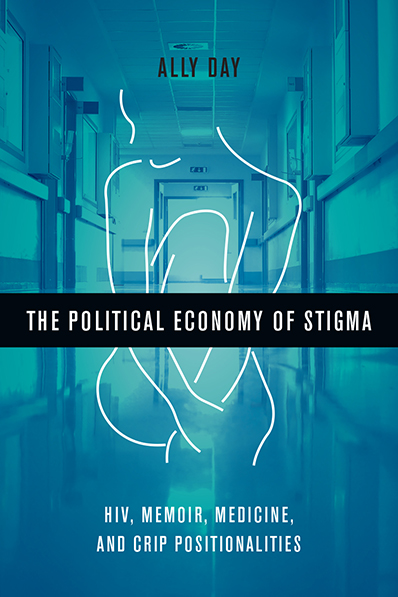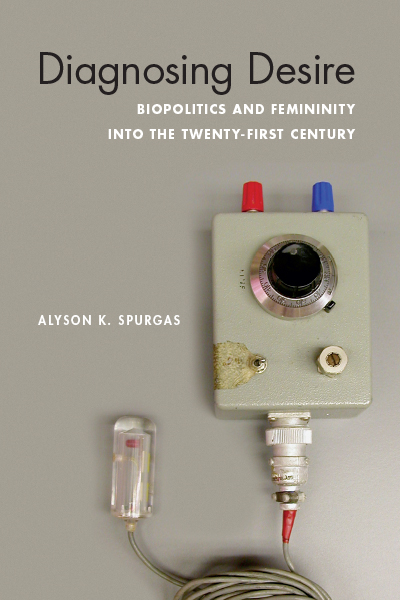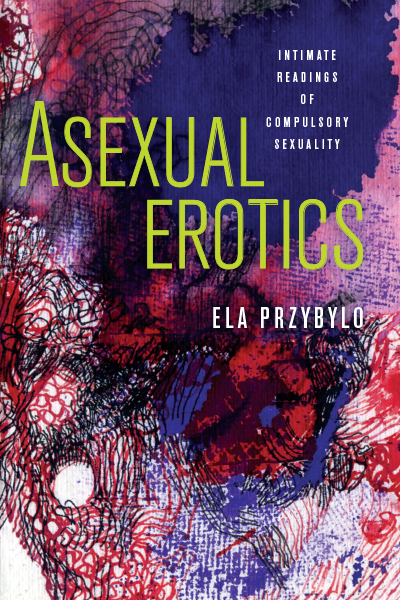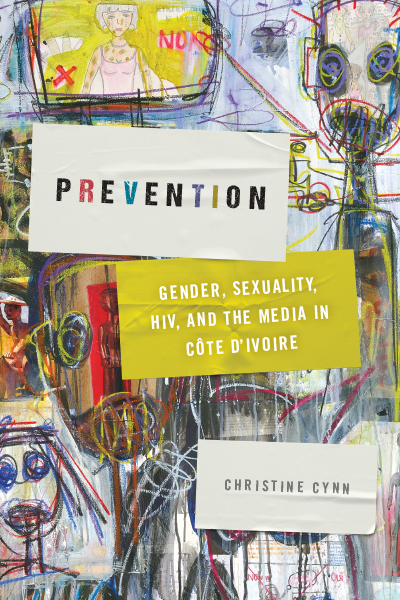Winner, 2022 Alison Piepmeier Prize from the National Women’s Studies Association
“The Political Economy of Stigma is a fresh, fierce, and deeply necessary text for life writing scholars, memoir fans, and health/illness practitioners and activists. … Day’s insights on the relationship between medicine, narrative, and stigma are relevant beyond the case studies she explores in her groundbreaking and politically salient book.” —Adan Jerreat-Poole, Auto/Biography Studies
“This book is a well-written, theoretically compelling, and highly approachable study that amplifies the experiences of women living with HIV. Ally Day documents the experiences of her participants in rich detail, all while generating innovative understandings of illness narrative that will resonate across many audiences. I consider this book to be essential reading for feminist and disability scholars.” —Harry Barbee, Gender & Society
“An ambitious and innovative piece of interdisciplinary scholarship.…At its heart, this is a book that aims to resist reductive medical narratives and find ways to address medical and social inequality.…The importance of this work is to highlight how social justice can help us to reframe the conversation away from stigma of disability and individual responsibility, and toward the systemic structures that reinforce the injustices of discrimination, race, poverty, ableism, and the narratives of wellness.” —Alice Brumby, H-Net
“In this groundbreaking book, Day builds on and extends key conversations about audience reception and reaction to memoir, motivations for reading and writing disabled lives, and the operation and maintenance of intersectional disability stigma. It is a must-read for scholars interested in life writing, textual circulation, disability studies, and humanistic approaches to medicine.” —Stephanie L. Kerschbaum, author of Toward a New Rhetoric of Difference
“This new theorization of stigma in relation to political economy is an important contribution to disability and crip studies, to literary studies, and to health humanities. Its innovative methods and its new concepts of ‘diagnostic’ and ‘differential reading’ are sure to stimulate discussion in these fields.” —Olivia Banner, author of Communicative Biocapitalism: The Voice of the Patient in Digital Health and the Health Humanities
In The Political Economy of Stigma, Ally Day offers a compelling critique of neoliberal medical practices in the US by coupling an analysis of HIV memoir with a critical examination of narrative medicine practice. Using insights from feminist disability studies and crip theory, Day argues that stories of illness and disability—such as HIV memoirs—operate within a political economy of stigma, which she defines as the formal and informal circulation of personal illness and disability narratives that benefits some while hindering others. On the one hand, this system decreases access to appropriate medical care for those with chronic conditions by producing narratives of personal illness that frame one’s relationship to structural inequality as a result of personal failure. On the other hand, the political economy of stigma rewards those who procure such narratives and circulate them for public consumption.
The political economy of stigma is theorized from three primary research sites: a reading group with women living with HIV, a reading group with AIDS service workers, and participant observation research and critical close reading of practices in narrative medicine. Ultimately, it is the women living with HIV who provide an alternative way to understand disability and illness narratives, a practice of differential reading that can challenge stigmatizing tropes and reconceptualize the creation, reception, and circulation of patient memoir.

Ally Day is Associate Professor at the University of Toledo. (Photo credit: Lee Fearnside)
Contents
Acknowledgments
Introduction Disability, HIV, and the Political Economy of Stigma
Part I The Neoliberalizing of Narrative
Chapter 1 The Political Economy of Stigma and the Production of Memoir
Chapter 2 Writing Labor, Writing Privilege in HIV Memoir
Part II The Privilege of Privacy
Chapter 3 Diagnostic Reading and the Limits of Disability Memoir
Chapter 4 Privacy, Bioethics, and Narrative Medicine
Part III Beyond the Parallel Chart
Chapter 5 Work, Disclosure, and the HIV Origin Story
Chapter 6 Power, Resistance, and Differential Reading Practices
Conclusion Disability, Debility, and Reading for Unruly Subjectivity
Pandemic Postscript
Appendix A Reading Group Bibliography
Appendix B Reading Group Discussion Guidelines
Works Cited
Index





